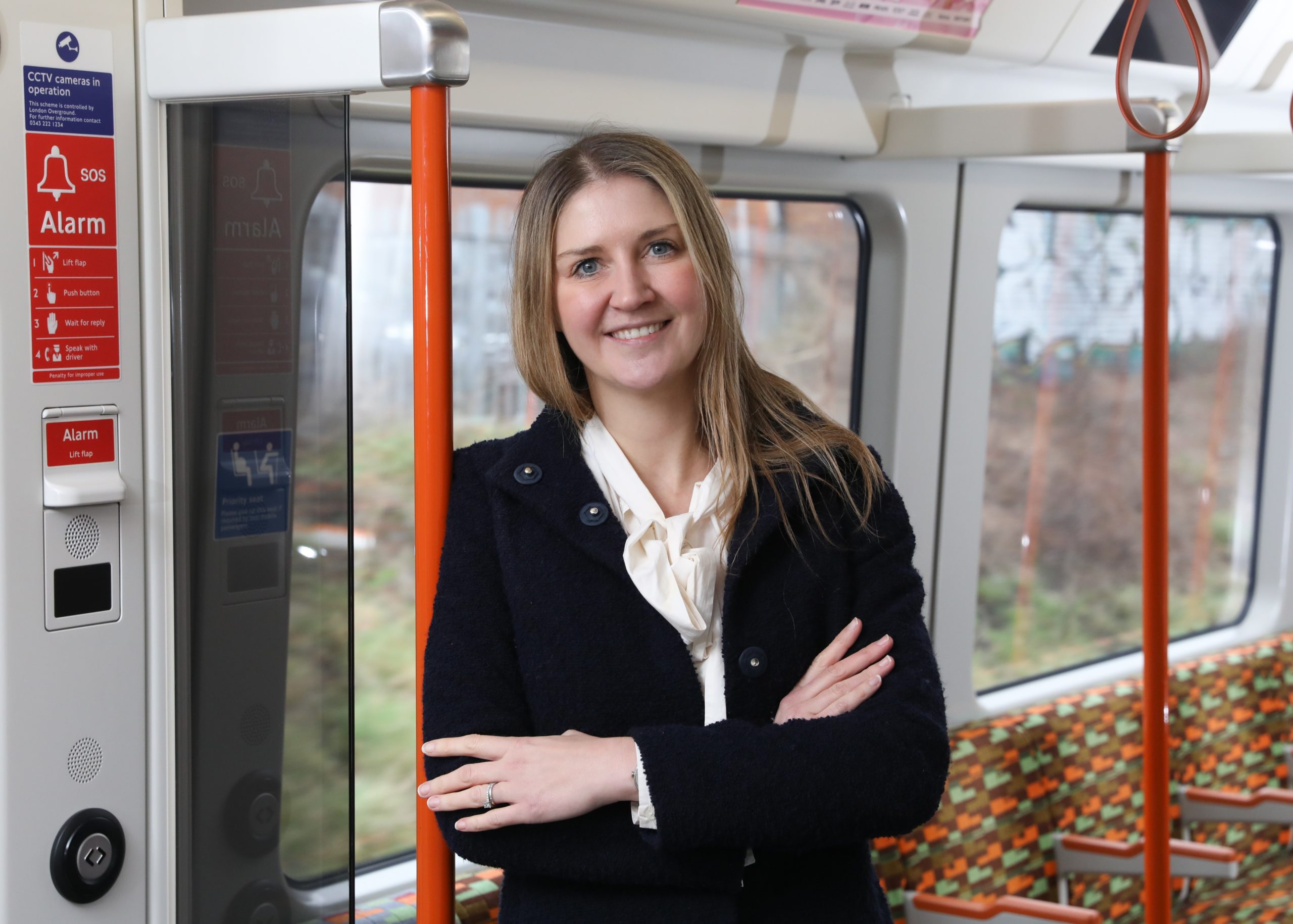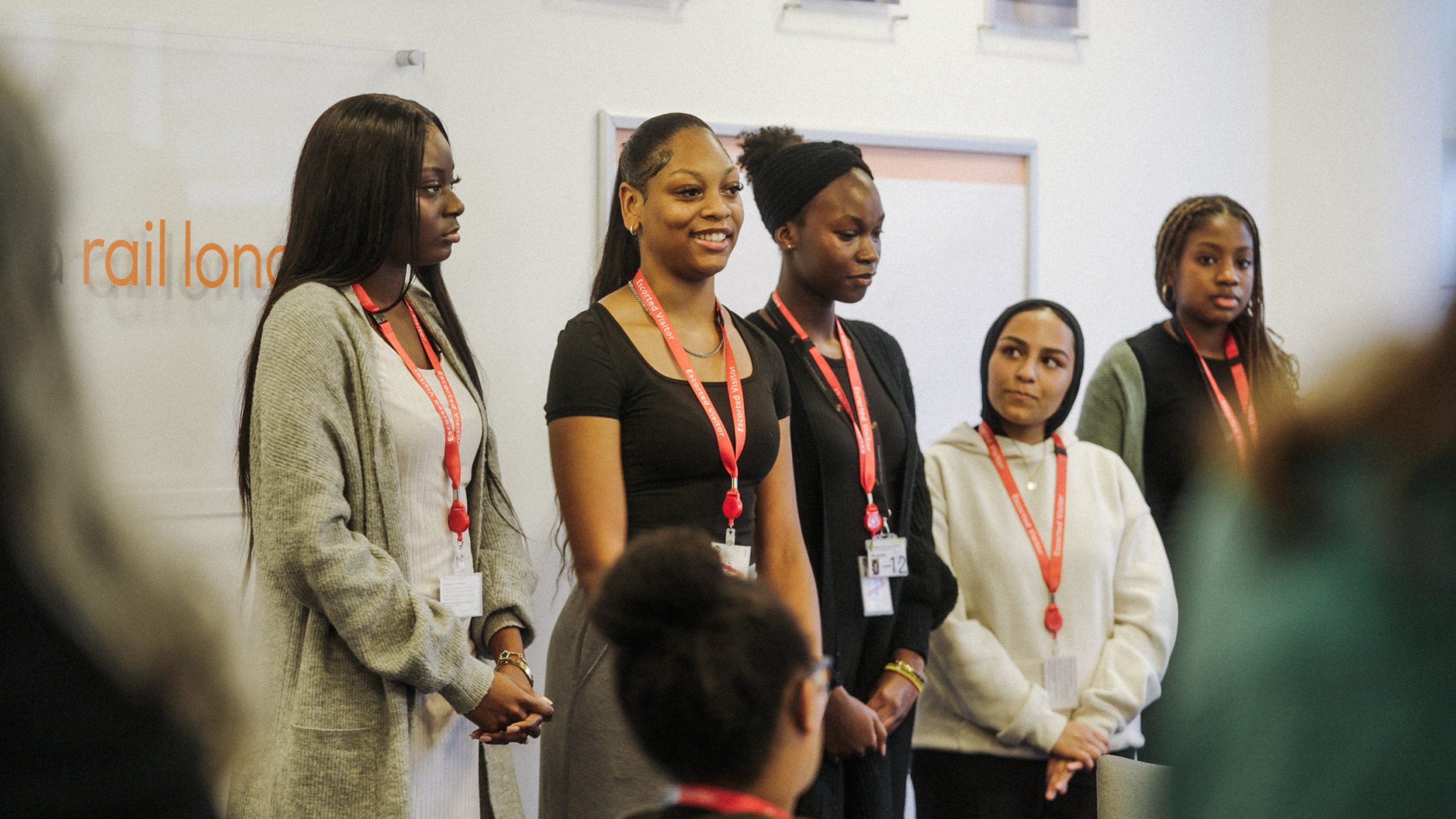- Home
- /
- Arriva Rail London news
- /
- Neurodiversity Celebration Week: A...
Neurodiversity Celebration Week: A father’s story, a brother’s story
17 March 2025

This week, people across the world will mark Neurodiversity Celebration Week, a worldwide initiative that challenges stereotypes and misconceptions about neurological differences. Arriva Rail London’s occupational health and safety specialist, John Mortlock, has shared his inspiring story of living with someone who is neurodivergent – both as a parent and a sibling.
A father’s journey
John’s son, Jayme, is a remarkable 21-year-old navigating life with autism, ADHD and haemophilia – a rare medical condition where the blood does not clot properly. Despite these challenges, Jayme maintains a strict routine, immersing himself in his passion for public transport. Whether simulating train routes on his Xbox or memorising every London station and bus route, Jayme’s interests reflect his incredible memory and dedication.
Finding employment has proven challenging, especially since Jayme finds it difficult to work in public-facing roles. However, he dreams of turning his passion into a career through a job in the rail industry: “He knows every station, every route—step-free options, the quickest transfers—you name it,” said John. “If only someone could see his potential.”
Living with haemophilia adds complexity to Jayme’s life. He self-injects medication three times a week – a responsibility he took on at just 12 years old after John’s wife Claire had to learn how to administer the injections before teaching Jayme. His parents are now encouraging him to manage his medication deliveries independently, preparing him for a future where he can confidently take care of himself. “We won’t be around forever,” John said. “So, we want to make sure Jayme has the skills he needs to live independently.”
Lessons from a lifetime of understanding
John’s personal journey with his son is not his only experience with neurodiversity. Growing up with his brother, Peter, who has the mental age of a seven-year-old, taught him patience and empathy. “At first, I didn’t understand why my brother was different,” he recalls. “But as I got older, my father helped me see that he was not misbehaving – his brain just worked differently. It was not easy, but it shaped how I now support my son.”

Despite their differences – Peter being loud and excitable and Jayme preferring quiet environments – the two have developed a special bond. “Jayme somehow understands that his uncle is loud, but he copes well. It is a relationship built on mutual understanding.”
Challenging misconceptions
One of the most frustrating aspects of raising a neurodivergent child, John says, is the constant battle against misconceptions: “People assume autism or ADHD is just bad behaviour – that kids will ‘grow out of it.’ That could not be further from the truth. These are developmental conditions that affect how a person interacts with the world. It is not something they can switch off.”
Creating a more inclusive workplace
What can a workplace do to be more inclusive? John believes it starts with education: “We need to prioritise awareness about neurodiversity and disabilities. It is about nurturing open communication, creating accessible environments, and actively recruiting diverse talent. People like Jayme have so much to offer – but they need the opportunity to step through the door.”
John also emphasises the importance of listening – not just to neurodivergent individuals but to their families: “Every person’s experience is unique. Understanding someone’s boundaries, communication style and routine is key. Patience and empathy go a long way.”
Embracing differences
When asked what message he wants people to take away about living with neurodiversity and medical challenges, John’s answer is clear: “Understand the individual’s needs and patterns. Be patient, seek advice, and remember – you are not alone. There are so many others facing similar journeys, and there is always help available. Neurodivergent individuals often have exceptional strengths – sometimes with higher IQs than most – so be kind, supportive and open-minded.”
ARL is committed to continuing these important conversations and ensuring that everyone – regardless of their neurological or physical differences – feels seen, heard and valued.



